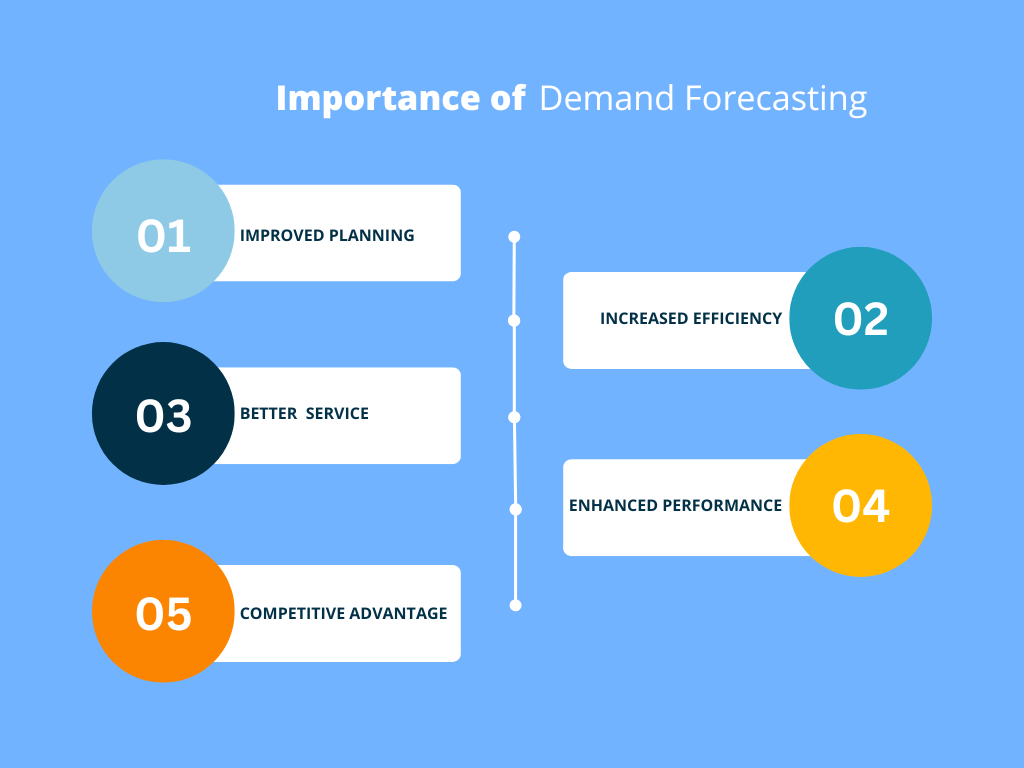Unleashing the Power of Inventory Forecasting
In the fast-paced world of business, staying ahead of the game is crucial for success. One key aspect that can make or break a business is inventory forecasting. Inventory forecasting is the process of predicting future demand for products based on historical data and trends. It may sound simple, but the impact of accurate inventory forecasting on a business’s bottom line is immense.
The critical role of inventory forecasting in business success cannot be overstated. By accurately predicting demand for products, businesses can avoid stockouts and overstock situations. Stockouts can result in lost sales and dissatisfied customers, while overstock situations tie up capital and lead to wastage. Both scenarios can have a significant negative impact on a business’s profitability.
On the flip side, accurate inventory forecasting can lead to increased sales and customer satisfaction. By having the right products in stock at the right time, businesses can capitalize on demand and maximize revenue. Additionally, by avoiding overstock situations, businesses can free up capital to invest in other areas of the business, further driving growth and success.
But how exactly does inventory forecasting work? It involves analyzing historical sales data, market trends, and other relevant factors to predict future demand for products. This can be done using various methods, such as time series analysis, regression analysis, and machine learning algorithms. By leveraging these tools and techniques, businesses can make more informed decisions about inventory levels and procurement strategies.

Image Source: cashflowinventory.com
One key benefit of inventory forecasting is its ability to help businesses plan ahead. By predicting future demand, businesses can better align their production schedules, marketing strategies, and pricing decisions. This proactive approach can give businesses a competitive edge in the market and enable them to respond quickly to changing customer preferences and market conditions.
Furthermore, inventory forecasting can help businesses optimize their supply chain and logistics operations. By accurately predicting demand for products, businesses can streamline their inventory management processes, reduce lead times, and minimize carrying costs. This not only improves operational efficiency but also enhances customer satisfaction by ensuring timely delivery of products.
In today’s digital age, technology plays a crucial role in inventory forecasting. Advanced inventory management systems and software solutions offer powerful tools for analyzing data, generating forecasts, and optimizing inventory levels. These technologies enable businesses to make more accurate predictions, reduce human error, and adapt quickly to changing market dynamics.
In conclusion, the critical role of inventory forecasting in business success cannot be ignored. By unleashing the power of inventory forecasting, businesses can optimize their operations, maximize sales, and drive growth. With the right tools, techniques, and strategies in place, businesses can stay ahead of the game and thrive in today’s competitive marketplace. So, don’t underestimate the importance of inventory forecasting – it could be the key to unlocking your business’s full potential.
Stay Ahead of the Game with Smart Predictions
In the fast-paced world of business, staying ahead of the game is essential for success. One way to do this is by making smart predictions through inventory forecasting. This critical tool allows businesses to anticipate demand, optimize stock levels, and ultimately increase profitability.
Inventory forecasting involves analyzing past sales data, market trends, and other relevant factors to predict future inventory needs. By utilizing advanced algorithms and data analytics, businesses can make accurate predictions about which products will sell well and when, enabling them to stock up on popular items and avoid overstocking on slow-moving goods.
One of the key benefits of using inventory forecasting is the ability to optimize stock levels. By accurately predicting demand, businesses can avoid stockouts, where popular items are out of stock, and reduce excess inventory, which ties up valuable capital. This not only improves customer satisfaction by ensuring products are always available but also reduces storage costs and minimizes the risk of obsolescence.
Furthermore, inventory forecasting can help businesses make informed decisions about pricing, promotions, and marketing strategies. By understanding which products are in high demand, companies can adjust prices to maximize profits or run targeted promotions to drive sales. This data-driven approach allows businesses to make strategic decisions that are more likely to resonate with customers and drive growth.
In addition to optimizing stock levels and pricing strategies, inventory forecasting can also improve supply chain efficiency. By accurately predicting demand, businesses can work more closely with suppliers to ensure they have the right amount of inventory on hand. This can lead to faster delivery times, reduced lead times, and overall improved efficiency in the supply chain.
Another key benefit of inventory forecasting is its ability to reduce the likelihood of stockouts. By predicting demand accurately, businesses can ensure they have enough stock on hand to meet customer needs, reducing the risk of lost sales and missed opportunities. This not only enhances customer satisfaction but also helps build brand loyalty and repeat business.
Ultimately, inventory forecasting plays a critical role in business success by helping companies stay ahead of the game. By making smart predictions about inventory needs, businesses can optimize stock levels, improve pricing strategies, enhance supply chain efficiency, and reduce the risk of stockouts. This data-driven approach not only increases profitability but also drives growth and ensures long-term success in an increasingly competitive marketplace.
The Importance of Inventory Forecasting in Business